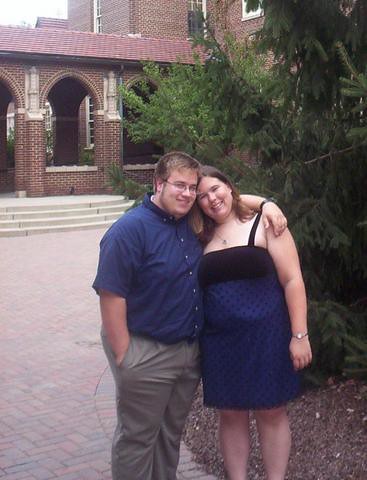The Task Force made three recommendations:
1. Because the God-given mission and communion we share is at least as important as the issues about which faithful conscience-bound Lutherans find themselves so decisively at odds, the Task Force for ELCA Studies on Sexuality recommends that the Evangelical Lutheran Church in America concentrate on finding ways to live together faithfully in the midst of our disagreements.
This is not a very suprizing thing to see. Since this is such a divisive issue within the ELCA, and Christianity at large, it is important to remember that we share a common call and a common mission. There are many churches within the ELCA which have threatened to succeed if it begins to bless same sex unions or ordain practicing homosexual clergy. Many congregations have been withholding their benevolence dollars for this same reason. This recommendation is a plea for unity of purpose and conviction in the face of disagreements over a very controversial issue.
2. The Task Force for ELCA Studies on Sexuality recommends that the Evangelical Lutheran Church in America continue to respect the pastoral guidance of the 1993 statement of the Conference of Bishops.
This may not make so much sense to you unless you are familiar with the guidance of the 1993 statement of the Conference of Bishops:
We, as the Conference of Bishops of the Evangelical Lutheran Church in America, recognize that there is basis neither in Scripture nor tradition for the establishment of an official ceremony by this church for the blessing of a homosexual relationship. We, therefore, do not approve such a ceremony as an official action of this church's ministry. Nevertheless, we express trust in and will continue dialogue with those pastors and congregations who are in ministry with gay and lesbian persons, and affirm their desire to explore the best ways to provide pastoral care for all to whom they minister.
So, what is basically being said here is that the ELCA as a parent organization sees no justification for the blessing of same sex unions. They are committed to helping local congregational pastors to work with those in their congregations who self-identify as gay or lesbian. What this means exactly is unclear (and I believe, intentionally so.)
3. The Task Force for ELCA Studies on Sexuality recommends that the Evangelical Lutheran Church in America continue under the standards regarding sexual conduct for rostered leaders as set forth in Vision and Expectations and Definitions and guidelines for Discipline, but that, as a pastoral response to the deep divisions among us, this church may choose to refrain from disciplining those who in good conscience, and for the sake of outreach, ministry, and commitment to continuing dialogue, call or approve partnered gay or lesbian canidates whom they believe to be otherwise in compliance with Vision and Expectations and to refrain from disciplining those rostered people so approved and called.
This is likely to be the most controversial part of the recommendations. Vision and Expectations is a document put out by the ELCA as a set of guidelines for the way ordained clergy are to live (Read it.) Before any canidate for ministry is approved for ordination they pledge that they will live in accodance with this document. In addition to sexual conduct, it also covers financial health, spiritual practices, general care for physical well-being, and other things.
What this recommendation says is that individual congegations, after prayerful consideration, may call a practicing homosexual. The further explanation in the document dictates that the congregation should not make a media event of the call, nor attempt to define their action as defiant or prophetic. This takes the decision-making from the hands of the ELCA and places it within the authority of individual synods and congregations.
The task force is recommending that we don not attempt to resolve the differences in the church by legislating practice or policy at the 2005 convention. They have basically said that the case for a change in current practice has not been made to the satisfaction of the majority within the church. From this point, these recommendations will be put before the ELCA general assembly which meets this summer. The members of this assembly were chosen last summer by the local synods and comprise 60% laity and 40% clergy. It will be up to this group to accept, reject, delay a vote, or dismiss the Task Force's findings without prejudice. This is not, in its present form, an addition to, or a revision of church doctrine.
I ask for your continued prayer for our church as it discerns God's will for our work in the life of the world.


1 comment:
After reading WordAlone and watersblogged!, it was nice to read something thoughtful and well written. I am just blogging along trying to make sense out of my favorite gospel.
Richard H. Anderson
http://kratistostheophilos.blogspot.com/
Post a Comment